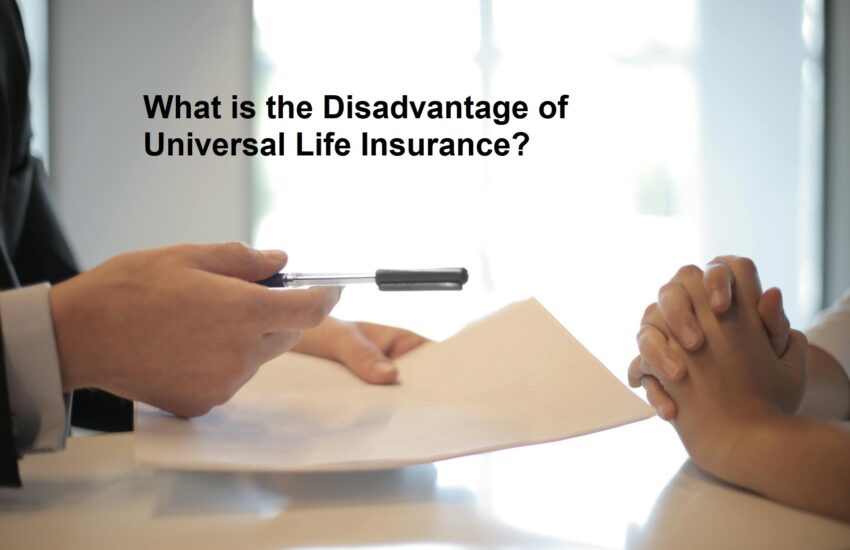Universal Life, normally marketed for its flexibility and added benefits for purchasers, combines life insurance coverage with an element of investment savings. While it offers numerous advantages, such as the potential for cash value growth and adjustable premiums, it’s crucial to understand the potential drawbacks, especially when considering Universal Life Insurance Plans in Canada. In this blog, we will discuss the cons of Universal Life Insurance, how it affects the cost, the structure of the plan, and in what way it can affect your financial planning.
High Cost of Insurance
One major drawback associated with Universal Life Insurance is its cost. Universal Life Plans are typically more expensive than term life because they are designed in such a way that they build cash value over time and also can last for your whole lifetime if needed. Asset-Based Lending can be a more cost-effective alternative to Universal Life Insurance, especially for individuals with significant assets. Portions of the premium you pay are used to cover the cost of life insurance, and another portion solely goes into the investment component.
Take the case of Tom and Sarah, a Canadian couple who bought Universal Life Insurance with long-term investment benefits in mind. What they did not know at first was that it could be a very premium-heavy buy compared to simpler-term life insurance. Because most Universal Life Insurance Quotes usually contain many layers of fees added on top of a base premium, these fees cut into how quickly the cash value of the policy can grow.
Complexity of Plans
Universal Life Insurance Plans can get pretty sophisticated because of the two-in-one premise, which binds the two roles of insurance and investment. This can often turn out to be a major disadvantage for policyholders who may not really have an idea of how exactly these plans work.
For an Ontario policyholder named Emily, the frequency at which her policy’s cash value changed and the effect of premium paying alterations were a stretch to understand. What was supposed to be a flexible benefit became a challenge as she waded through the terms and conditions governing the policy. The high premiums associated with Universal Life Insurance could divert funds away from essential business investments, such as upgrading equipment or expanding an Escape Room Business.
Interest Rate Sensitivity
In the case of a universal life policy, returns relate directly to prevailing interest rates or returns from chosen investment options. For the last couple of years, interest rates have been low, which can result in returns for the cash value component of one’s coverage below what is normally expected, hence affecting the net benefit one could get from a policy.
John had a Universal Life Insurance Plan when interest rates were higher, but with the fall in rates, he saw a significant drop in returns. Apart from affecting the growth in investing through a policy, more of his premium has to be used to cover the cost of insurance, making it less effective as a savings tool.
Premium Payment Flexibility Risks
Although one of the selling points of Universal Life Insurance is flexibility in premium payments, that is also where the pitfall can be. If not carefully managed, changes in premium payments can affect the policy’s death benefit and long-term viability.
One consumer, Linda, from British Columbia, decided to reduce premium payments one year when premiums were high. She didn’t realize that the reduction would start eating into her cash value, which was used to pay for insurance coverage, risking the policy’s lapse if the cash value became too low.
Read: The Future of Credit Cards: Discovering Trends and Innovations
Risk of Lapse
Universal Life Insurance policies can lapse when the cash value within the policy is not sufficient to pay system charges and costs. This occurs particularly during periods with low investment returns or if premium payments are made inadequately.
How Could This Happen? Mark, of Alberta, was flabbergasted to learn that his Universal Life Insurance policy had lapsed. He stopped paying premiums years ago when he assumed that investment returns would cover the insurance sufficiently. Of course, with a couple of low-return years on the investment side, the cash value depleted, and the policy lapsed.
Transparency and Misunderstandings
Another big possible drawback of Universal Life Insurance is the high possibility of confusion and opacity. Policyholders must be informed of everything pertaining to their policy, such as how charges are deducted and how cash value is calculated.
Nancy, from Nova Scotia, had issues with transparency. She felt that her policy’s cash value had been reduced because of charges that really weren’t expected of her. These were not clarified while she was getting Universal Life Insurance Quotes, and so it resulted in an accumulation in the cash value that was less than she expected.
To Summarize
Universal Life Insurance can be a very valuable financial instrument for those who fully understand its complexities and can manage them. Otherwise, it’s not at all appropriate in terms of cost, complexity, and the need for active management. It is, therefore, important to consider Universal Life Insurance Costs and the specifics of such a policy before entering into one. Consult with knowledgeable insurance professionals in relation to a number of issues that each individual has and become sure that the selected policy really corresponds to your long-term financial goals. Remember, a well-informed decision is the best decision when it comes to choosing the right insurance plan for your future.

